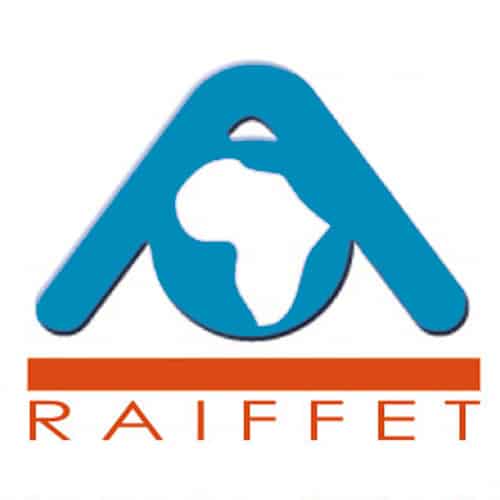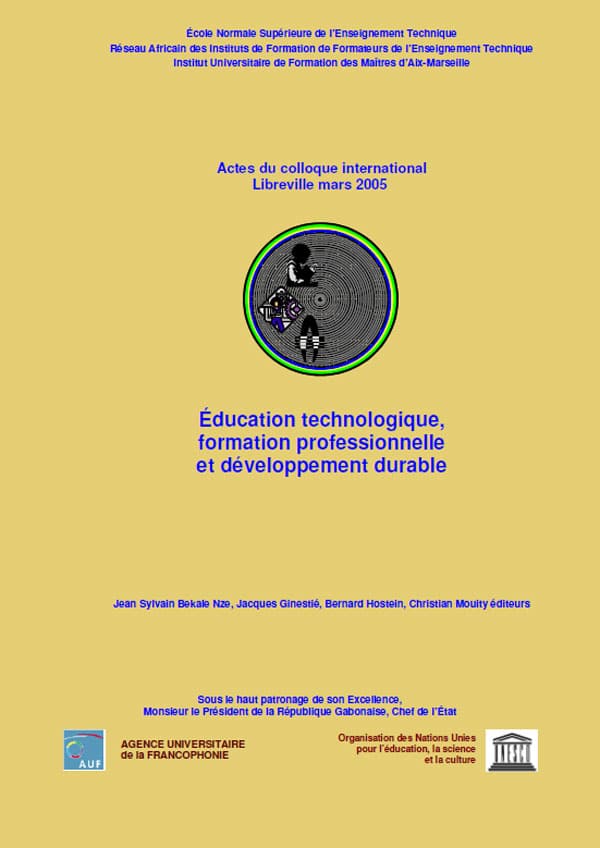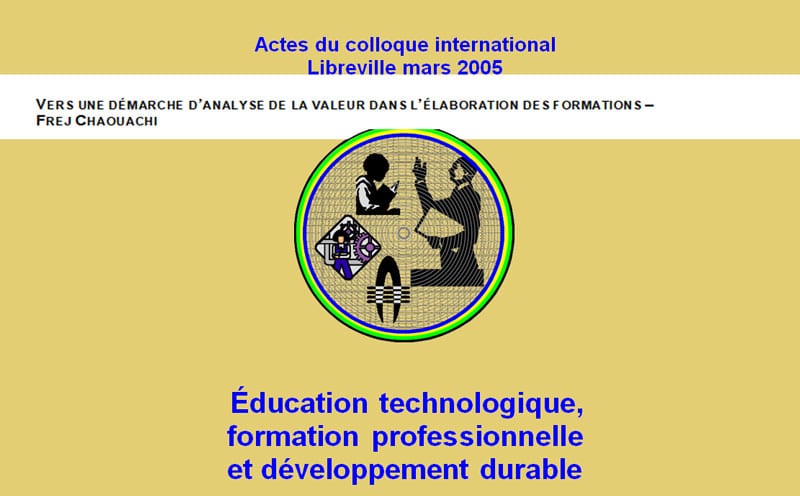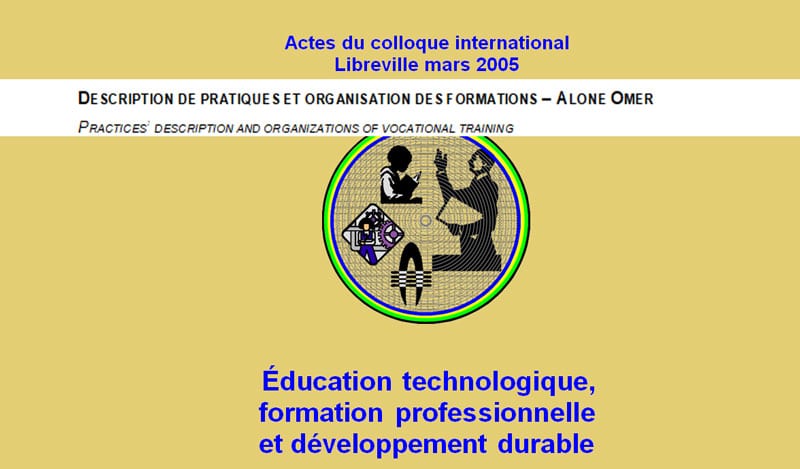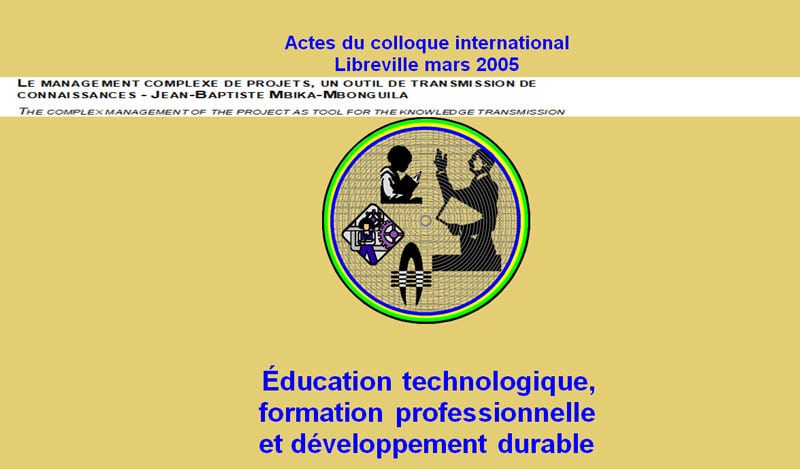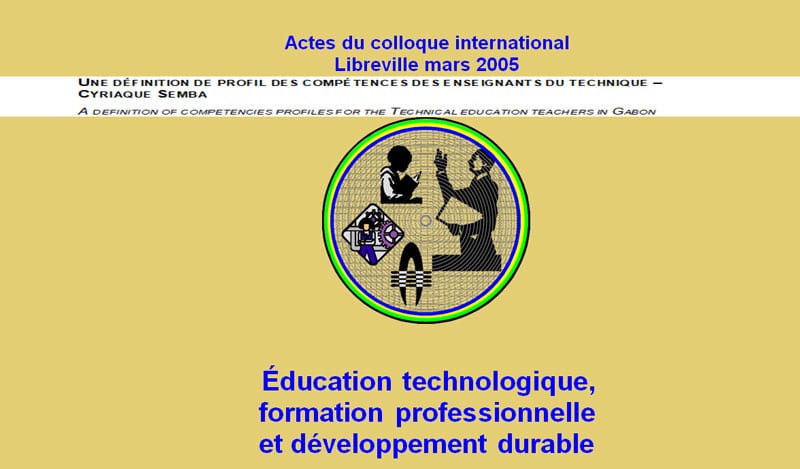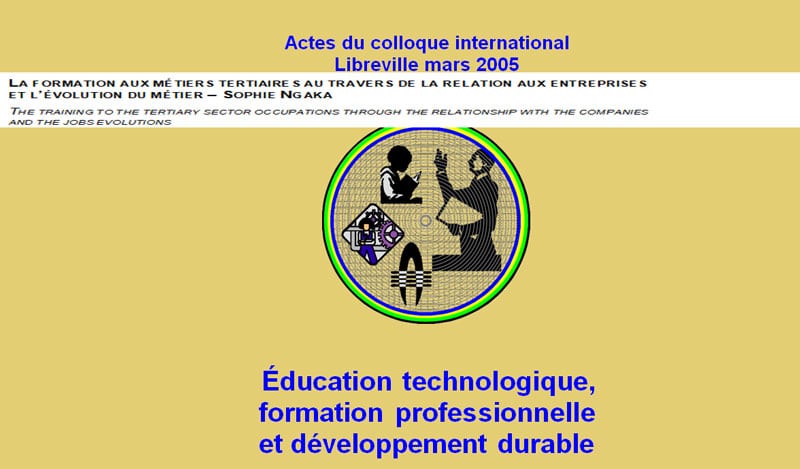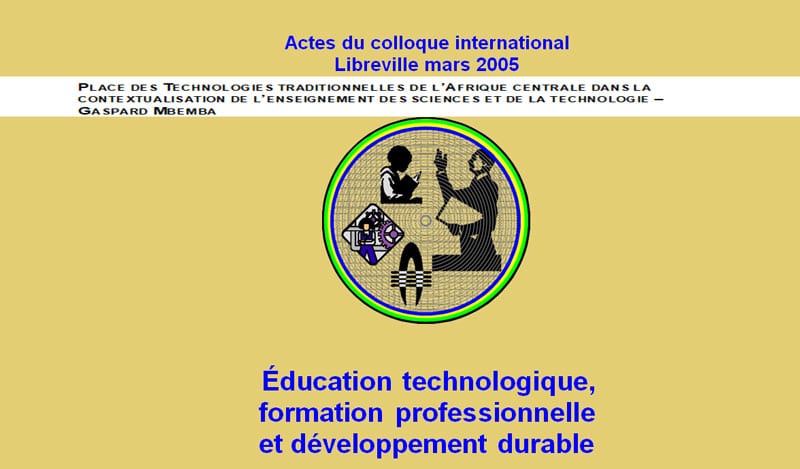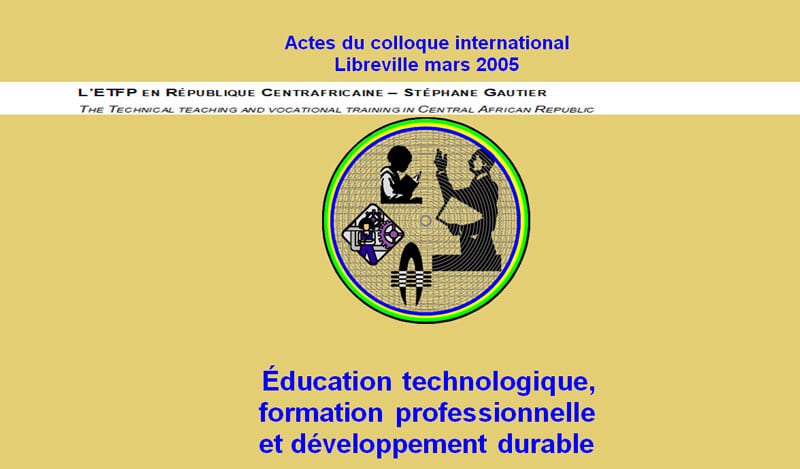
L’ETFP EN RÉPUBLIQUE CENTRAFRICAINE – STÉPHANE GAUTIER THE TECHNICAL TEACHING AND VOCATIONAL TRAINING IN CENTRAL AFRICAN REPUBLIC LIBREVILLE2005
THE TECHNICAL TEACHING AND VOCATIONAL TRAINING IN CENTRAL AFRICAN REPUBLIC
Chef du Projet Enseignement technique et formation professionnelle, Ambassade de France – Bangui, République Centrafricaine
SUMMARY
With about 3 million inhabitants, among them near 65% are under 25, Central African Republic has unfortunately one of the lowest primary education rates in Africa. Efforts made by the Ministry of Education for the training of schoolmasters and school directors are not enough to ensure education signing seriously away the purposes of schooling for everybody in 2015. The Central African Republic has only one Primary Teacher Training Centre and one Secondary Teacher Training Centre. The ETPF (vocational and technical education) plan of action is very narrow considering the size of its population and that of its economy, but also it does not fit. Inherited from the French cooperation, that plan of action has not been capable of developing between the years after independence and nowadays. We also notice that trainings copied from the French pattern of the sixties do not match with the demand of the companies and that professional qualifications do not cope with the demands of profile in almost all the sectors of activity. If the country has not been aware of fitting trainings to the labour market by the elaboration of a self sufficient and liable policy, it has not been capable either to ensure the normal running of training schools or the trainers’ s wages at a competitive level. We can see today despite a very difficult economic context the paradox linked to the lack of qualified workers while many youngsters are looking for a job with their degrees. In that difficult situation, the CAR must turn towards partners and emphasize on bilateral and multilateral assistance otherwise, it won’t be able to ensure by itself (alone) the preservation of an educational system that is in great difficulty.
RÉSUMÉ
Avec une population d’environ 3 millions d’habitant dont près de 65% sont des jeunes de moins de 25 ans, la République Centrafricaine possède malheureusement l’un des taux de scolarisation primaire les plus faibles d’Afrique. Les efforts du Ministère de l’Éducation Nationale pour la formation des maîtres et celles des directeurs ne suffisent plus pour assurer la scolarisation hypothéquant ainsi sérieusement les objectifs de scolarisation pour tous en 2015. La République Centrafricaine ne possède qu’une école normale d’instituteurs et qu’une école normale supérieure pour tout le pays. Le dispositif E T F P est très restreint eu égard à la taille de sa population et à celle de son économie mais il est aussi mal adapté. Hérité de la coopération française, ce dispositif n’a pas été en mesure d’évoluer entre les années postindépendance et aujourd’hui. On constate que les formations copiées du modèle français des années 60 répondent aujourd’hui peu à la demande des entreprises, que les qualifications professionnelles ne répondent pas aux exigences de profil dans quasiment tous les secteurs d’activité.
Si le pays n’a pas su adapter les formations au marché du travail par l’élaboration d’une politique autonome et responsable, il n’a pas su non plus assurer le fonctionnement normal des établissements de formation ni la rémunération des formateurs à un niveau compétitif. On se rend compte aujourd’hui, malgré un contexte économique très difficile, du paradoxe lié au manque de main d’œuvre qualifié alors que nombre de jeunes sont en quête d’emploi diplômes en main (?). Dans ce contexte difficile, la RCA doit se tourner vers des partenaires et s’ouvrir largement aux aides bilatérales et multilatérales car elle ne pourra certainement pas seule assurer le maintient d’un système éducatif qui est en grande difficulté.
